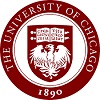Job Description
Thirty Nobel Prize-winning physicists have studied, researched, or taught at UChicago, beginning with Albert Michelson, whose measurements of the speed of light earned him the Nobel in 1907. The current faculty is ranked in the top 7 of 147 physics faculties reviewed by the National Research Council. UChicago contributions to the field include the first controlled, self-sustaining nuclear reaction; the theory of white dwarves, neutron stars, and black holes; and discovery of the top quark.
The major program in Astrophysics reflects Chicago’s tradition of interdisciplinary study and emphasis on mastery of the intellectual processes of inquiry and discovery. Courses in Computer Science and Statistics complement a foundational program in Physics, reflecting the essential relationships among the physical sciences. The program emphasizes laboratory experimentation and covers the fundamentals necessary for graduate study or careers in theoretical physics, experimental physics, astronomy and astrophysics, some fields of engineering, and interdisciplinary specialties such as biophysics, medical physics, and atmospheric and environmental sciences. Students will gain broad knowledge of the universal, physical laws from the nuclear to cosmological; familiarity with computational methods and statistical data analysis; and experience with experimental and observational techniques through participation in research.
There are two tracks for students interested in the major: the BA in Astrophysics and the BS in Astrophysics. The BS track is recommended for students expecting to apply to graduate school in the physical sciences. Research opportunities at the James Franck Institute, Enrico Fermi Institute, Kavli Institute for Cosmological Physics, Institute for Biophysical Dynamics, Fermi National Accelerator Laboratory (FermiLab), Argonne National Laboratory, and Chicago Materials Research Center are numerous.


